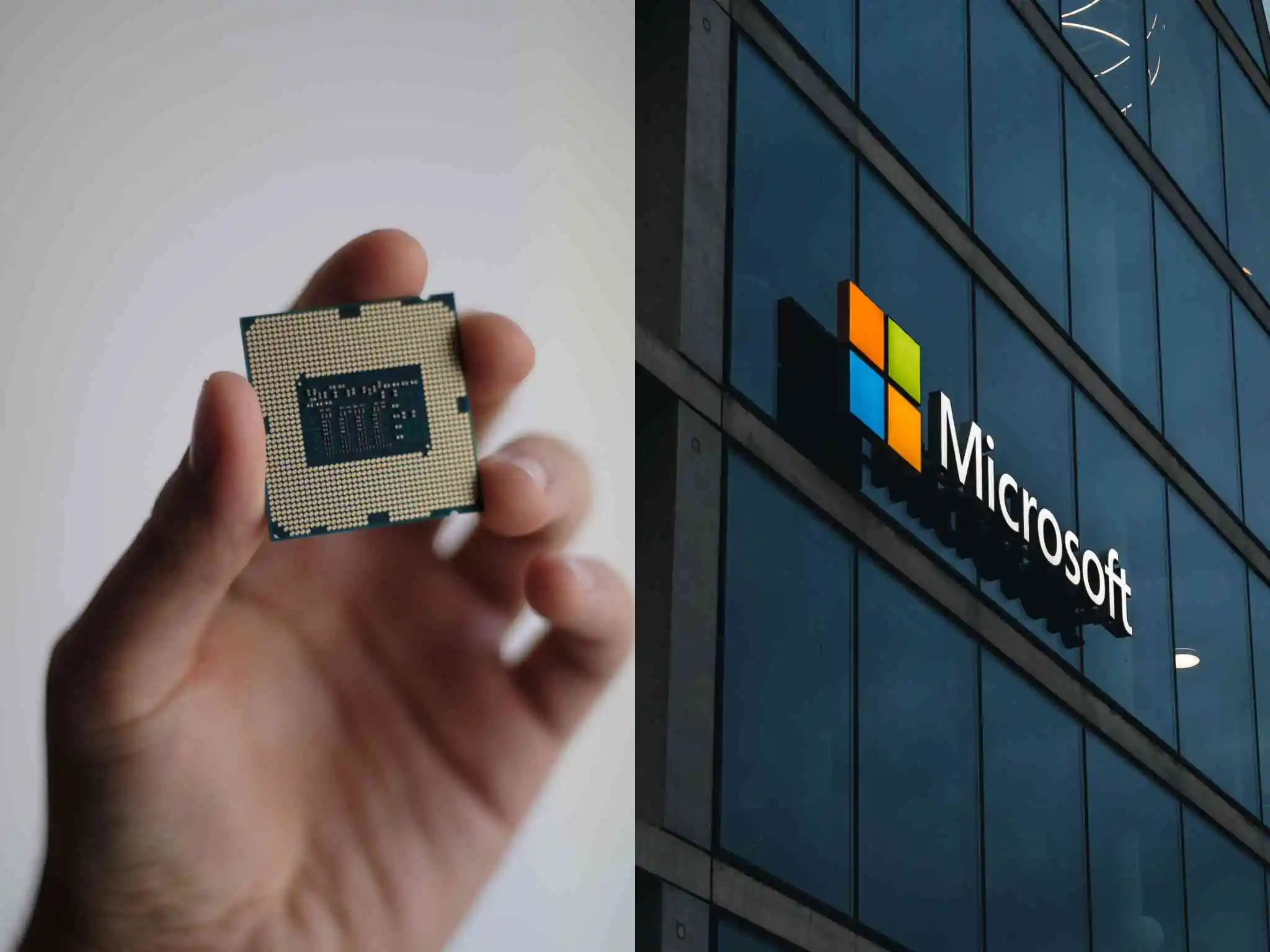- Maia 100 is designed for training and running artificial intelligence models, while Cobalt 100 is intended for running general workloads.
- Both Maia 100 and Cobalt 100 are set to roll out to Azure data centers early next year.
Microsoft has developed its own customized artificial intelligence chips, the Azure Maia AI Accelerator, and the Azure Cobalt CPU. These chips are internally built and aimed at optimizing the performance, power, and cost of artificial intelligence workloads.
Microsoft AI chip – Maia
According to Reuters, Microsoft does not intend to sell these chips to Nvidia, AMD, Intel and others but rather employ them to power its subscription software products and for its Azure cloud computing services.
The Maia chips are designed to operate Microsoft’s product, Copilot and the Azure OpenAI, which was developed in collaboration with OpenAI.
Microsoft executives stated their plans to address potentially tenfold costs of traditional services like search engines by employing a unified foundational artificial intelligence model. They mentioned that the Maia chips are optimized for this purpose.
Scott Guthrie, Executive Vice President of Microsoft’s Cloud and AI Group, stated, ‘We believe this provides us with a superior solution, enabling us to meet customer demands faster, more economically, and with higher quality.’
Also read: OpenAI Contemplates In-House Chip Production Amid Global Shortages
Take on the workload – Cobalt
Pat Stemen, Project Manager of the AHSI team, mentioned that prior to 2016, most of Microsoft Cloud’s infrastructure was established through the purchase of off-the-shelf equipment.
Subsequently, Microsoft decided to start custom building servers and racks in-house to reduce costs and provide customers with a more consistent experience. Over time, silicon became one of the key requirements.
According to Microsoft official news, Stemen said that Microsoft shared its design experience for custom racks with industry partners, making them usable regardless of what silicon is placed inside. “All the things we build, whether infrastructure or software or firmware, we can leverage whether we deploy our chips or those from our industry partners,” he said.
Microsoft, through the development of its in-house custom silicon capabilities, can precisely meet specific quality standards and ensure optimal performance of chips under critical workloads. The testing process involves evaluating the performance of each chip under different frequencies, temperatures, and power conditions to ensure the highest peak performance.
It is crucial that, in the real-world Microsoft data centers, each chip undergoes testing under conditions and configurations that simulate real-world scenarios to ensure performance meets expectations. This silicon architecture not only enhances Microsoft’s cooling efficiency but also optimizes the utilization of its current data center assets, maximizing server capacity within its existing footprint.
Microsoft intends to expand these options in the future and has begun designing the second generation of the Azure Maia AI accelerator series and the Azure Cobalt CPU series. Stemen pointed out that the company’s mission remains consistent: optimizing various levels of the technology stack, extending from core silicon components to the ultimate services.
Also read: Intel launches Habana Gaudi2 AI accelerators in China as an alternative to NVIDIA A800 chips
At present, Maia 100 is in the testing phase on GPT-3.5 Turbo, supporting models such as ChatGPT, Bing AI workloads, and GitHub Copilot. Microsoft is in the early deployment stage and has not yet released specific information about Maia’s specifications or performance benchmarks.

